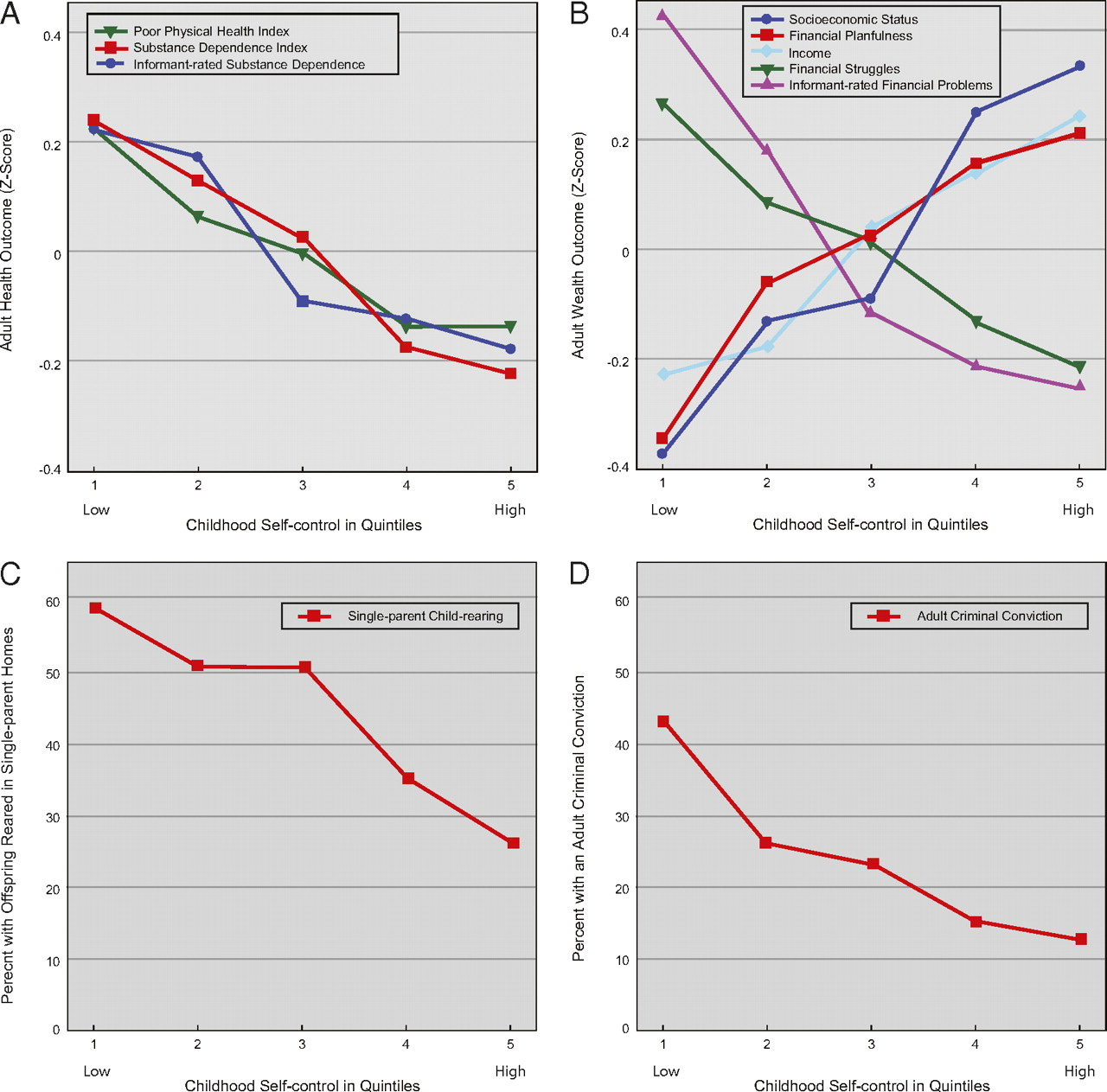Self-Control as a Performance-Enhancing Drug
Like cognitive ability, self-control predicts health, wealth, and all things good
Just a quick note today to share with you one of my all-time favorite graphs. It’s from a classic paper by the psychologist Terrie Moffit and colleagues, and it shows how self-control measured in childhood correlates with a range of important adult life outcomes. Long story short, self-control is an all-purpose good like IQ: It predicts health, wealth, and all things good.
What are the implications? The main one is that interventions to increase self-control could potentially greatly enhance human wellbeing. And the good news here is that people aren’t quite as uncomfortable with the concept of self-control as they are with the concept of IQ. That means we might more easily be able to make some headway.
Anyway, the paper is open access, so you can read the whole thing for free. Here’s the abstract to whet your appetite:
Policy-makers are considering large-scale programs aimed at self-control to improve citizens’ health and wealth and reduce crime. Experimental and economic studies suggest such programs could reap benefits. Yet, is self-control important for the health, wealth, and public safety of the population? Following a cohort of 1,000 children from birth to the age of 32 y, we show that childhood self-control predicts physical health, substance dependence, personal finances, and criminal offending outcomes, following a gradient of self-control. Effects of children’s self-control could be disentangled from their intelligence and social class as well as from mistakes they made as adolescents. In another cohort of 500 sibling-pairs, the sibling with lower self-control had poorer outcomes, despite shared family background. Interventions addressing self-control might reduce a panoply of societal costs, save taxpayers money, and promote prosperity.




Thanks for your regular and always exciting posts! What I'm wondering is whether there are actually any psychological traits that can be explained to a relevant degree by shared environment? Do you think that shared environmental influences such as dysfunctional family background, trauma or war have an impact? What about parenting styles (e.g. authoritarian vs. egalitarian)?